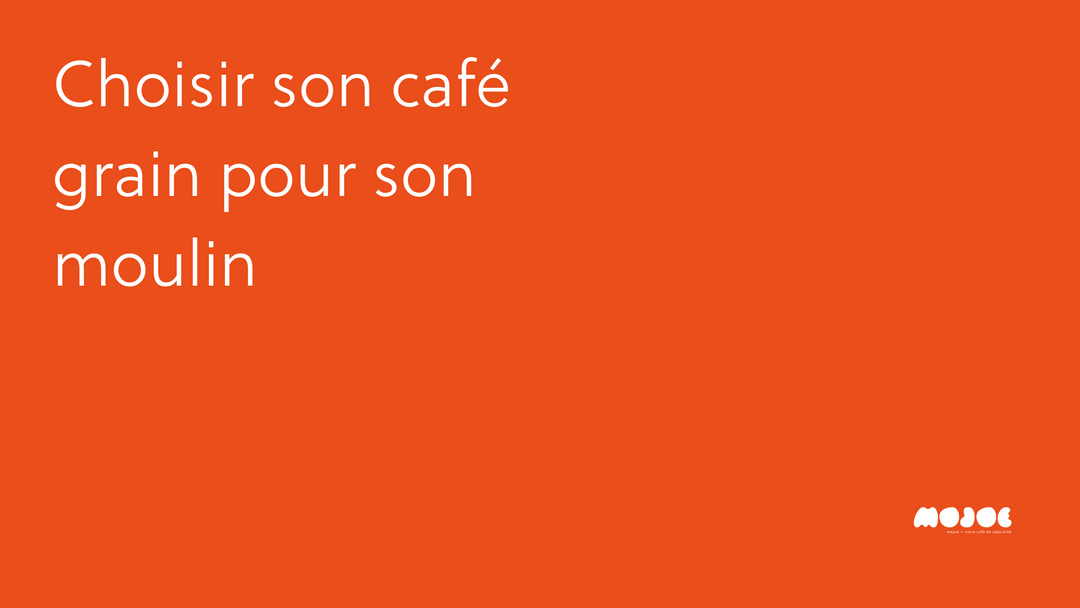Asia, a major trend in specialty coffee
Last week, Milan (Italy) was the center of the coffee world as it hosted the World of Coffee convention organized by the Specialty Coffee Association of Europe. This major event is held once a year in the United States, Europe and Asia. Lombardy welcomed thousands of professionals from all over the world for a three-day event where they tasted, mingled, laughed, did business, and drank coffee cocktails.
To read this article in French, click here.

It's often difficult to keep in touch with all the people I've met along my journey in the coffee industry, as most of them live in Asia or America and are extremely busy. The event in Milan was then the perfect excuse to have a sweet call with Natchapat Srichandr and her business partner Thomas J Ameloot with whom she runs the Bluekoff Education Center in Bangkok - Thailand, as we finally shared the same time zone.
 |
Natchapat is Thai, lives in Bangkok most of the year and was my Coffee Quality Institute (CQI) instructor with Trish Rothgeb when I took my Arabica Q Grade in San Francisco a few years ago. She was the first female Q Grader in Thailand and has used her knowledge of sensory analysis and tasting to work on projects in several countries and help educate the world about coffee and quality. |
Coffee has a magic that can bring people together. As an anecdote, when I met Natchapat, she was spending a year in California and I was working for a coffee trader in Mexico; she is Thai, I am French - our common language was and still is coffee. We only spent two weeks of intense training together, but we are still in touch.
 |
Thomas was born and raised in Detroit, he is now based in Bangkok until the end of the summer after several months operating the Thai capital. He is QA Director of Mananalu Water, Educator and Consultant in coffee, tea, and other specialty beverages. Q Arabica and Robusta Instructor, SCA AST in Brewing, Barista, Sensory, Roasting, and Green. He works with Natchapat to promote a scientific approach to coffee quality through various projects. |
I was very fortunate to have the opportunity to take an hour of their time during World of Coffee last week. They both looked very tired after spending all day cupping, but also very happy, their energy and positive vibes were very communicative. Here is a summary of our interview.
Education is the key to awake the local market
Southeast Asia is a fast-paced region of the world, even more so when it comes to coffee. Demand for specialty coffee from Thailand, Indonesia, the Philippines and Myanmar is skyrocketing in the U.S., but supply is not keeping up for at least two reasons.
The first is simple, nationals are discovering the taste of their coffee with a passion.
"In Bangkok, you have a coffee bar every 20 meters, the cup of americano is almost $3 USD and the baristas are real stars there," Ameloot explains.

In general, the demand for coffee is increasing in Asian producing countries, a good sign for local coffee growers. To give a tangible example, it is well known that in the past, Thailand mainly imported coffee from South America for domestic consumption. Today, the trend is to consume Thai coffee beans.
The second reason for the low representation of Southeast coffees in American and European coffee bars is the very low production of stable specialty coffee beans in these countries.
"Many people are willing to pay for a cup of specialty coffee without knowing what real good coffee is, there is a long way to go to educate farmers to help them produce good coffee as well as coffee drinkers by giving them the keys to enjoy a cup of coffee." says Srichandr.
That's why she founded the Coffee Producer Groups in 2015 where she and Thomas teach many high-end technical classes to build understanding of what tasting great coffee is through CQI standards.
How does Asian specialty coffee taste?
The Indonesian archipelago is composed of many coffee producing islands. The two most famous are Java and Sumatra. It is a coffee with forest notes: woody, peaty, nutty, chocolatey and slightly spicy. The Javanese coffee trees absorb the nutrients and incredible flavors of the island's soil to create a wonderfully rich, full-bodied coffee with hints of dark chocolate and chili.
Coveted and praised around the world, Sumatran coffees are uniquely intense with a thick, creamy texture, low acidity and deep, almost bitter notes of chocolate, chili, sweet fruit, cedar, tobacco and peat. Phenomenally diverse, with its pristine ancient forests, flaming volcanoes, rich soils, stable microclimates and the biodiversity necessary to create a naturally ecological and complex cup, Sumatra is an ideal island for coffee growing.
The island of Flores is one of the smallest of the archipelago but is not without interest, its coffees are intensely chocolatey, earthy but especially floral due to the volcanic nature of its soil.
Gigantic potential, big challenges
Studies are very clear, when a country starts a transition from low grade / commodity coffee to specialty consumption, there is no way back. Look at the USA, Japan, Sweden, Australia, people know about coffee. They really do.
"It's a matter of time and dedication, we need NGOs and nonprofits to support what we do in Thailand, the Philippines and Laos, because the costs can't be covered by the farmers," Thomas explains.
He and Natchapat are, as they call themselves, connectors. Through the huge network they both have around the world, they create long-term relationships between professionals from Brazil, the United States, Central America (Guatemala) and farmers in Southeast Asia by inviting them to assess producers during field workshops, always helped by the CQI frame. It's a way to accelerate the learning process on the ground and position this region of the world as a reference for specialty coffee.
I am personally convinced that the future of coffee is Asia, and thanks to people like Natchapat and Thomas, it might happen sooner than expected.





Laissez un commentaire